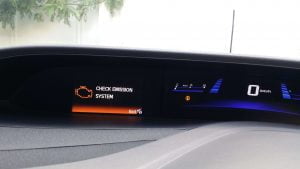- November 16, 2021
- By Atif Rashid
- In Blog
- Tags fuel
- 1558
- 0

When people argue against battery-electric vehicles (BEVs), they frequently end up stating hydrogen is the “true” environmentally benign alternative to fossil fuel. However, EV sceptics now have a new stick to bash BEVs with: synthetic fuels. Synthetic “e-fuels” are an even more apparent alternative than hydrogen for individuals who don’t like change. Because they can theoretically be utilized with present internal combustion engines and refueling infrastructure. However, e-fuels are even less probable than hydrogen to address the climate change problem.
Aren’t a brand-new invention. However, they have resurfaced in the argument because Porsche’s chief of research and development, Dr. Michael Steiner, recently said that e-fuels might allow Porsche to sell internal combustion engine automobiles alongside electric vehicles even after the UK prohibits fossil fuel engine sales in 2030. At a factory in Chile, Porsche and Siemens have been developing synthetic fuels. According to Porsche VP Dr. Frank Walliser, synthetic fuels might lower CO2 emissions from engine combustion by roughly 85% in principle. That is certainly not zero, but it is unquestionably better than the current scenario.
Certainly, there are some merits to the argument. With simply a change of pump, the present refueling station infrastructure may be utilized instead of hydrogen. Which requires an entirely separate system because it must be kept at 700 atmospheres. The fact that these fuels are a drop-in substitute for conventional fossil fuels is also a “killer feature,” since existing automobiles can utilize them without modification. Nobody would need to purchase a new vehicle. Those who dread the lifestyle adjustment that comes with owning a BEV will like this “business as usual” element.
The major manufacturers, such as Tesla, Volkswagen, Renault, and Kia-Hyundai, do not arbitrarily limit the capabilities of their vehicles. It’s also worth noting that not even Steiner believes synthetic fuels would render BEVs obsolete while allowing Porsche to keep selling niche automobiles like the 911 GT3. Porsche’s own programmes have timelines that are incompatible with widespread adoption. The Chile facility’s initial trial output will not be until 2022, and production will still be limited to 55 million liters by 2024, then half a billion litters by 2026.

To put this in context, the UK utilizes 45-50 billion liters of fossil fuel every year, while the US utilized 123.49 billion gallons (467 billion liters) of finished motor gasoline in 2020. So, even by 2026, Porsche’s Chile facility will only be able to provide 0.1 percent of the demand in the US alone. Although this isn’t the only firm building up e-fuel manufacturing. It’s evident that this is a low-volume product aim at niche markets.
Synthetic fuel made by mixing CO2 and hydrogen, the resulting raw material utilized to make the sub-types of petrol and diesel. Not only does this process have several phases, each of which adds cost and uses energy. But the primary component is hydrogen, which raises identical energy efficiency concerns as hydrogen fuel cells. In reality, the situation for synthetic fuel is far worse. Hydrogen fuel cells are now 2.3 times less energy efficient than batteries, according to Transport & Environment, with the gap closing to 2 times less efficient by 2050.

Synthetic fuels are much less efficient, with estimates of around 4 times efficiency of batteries by 2050 and minimal improvement. To put it another way, fueling present automobile fleet with synthetic fuels rather than batteries would necessitate 4 times amount of electrical produced. If 10% of the UK’s vehicles, vans, and small trucks ran on e-fuels. It would require three times the amount of renewable energy as batteries. It’s also unthinkable that synthetic fuel will be less expensive than charging batteries with energy.
Of course, this assumes that the hydrogen created using renewable energy, which accounts for only 1% of current hydrogen production. The rest comes from different forms of fossil-fuel-based processes, which nonetheless emit pollutants to varying degrees (grey or blue hydrogen). Hydrogen is currently not a green fuel; rather, it is the oil and gas industry’s attempt to stay relevant in an ever-changing world. Grey and blue hydrogen is less expensive than hydrogen made from water and energy. But it isn’t a solution to the world’s current environmental concerns.
When all of these factors considered, synthetic fuel will be too little, too late, and too expensive per mile. By 2050, e-fuels will have reduced CO2 emissions by 85 percent at best. BEVs, on the other hand, can achieve a 100 percent reduction in vehicle CO2 emissions right now in nations with a large deployment of renewable energy, such as the United Kingdom. Which one do you believe has the most chance of saving the world from the climate change crisis?
Follow Us





